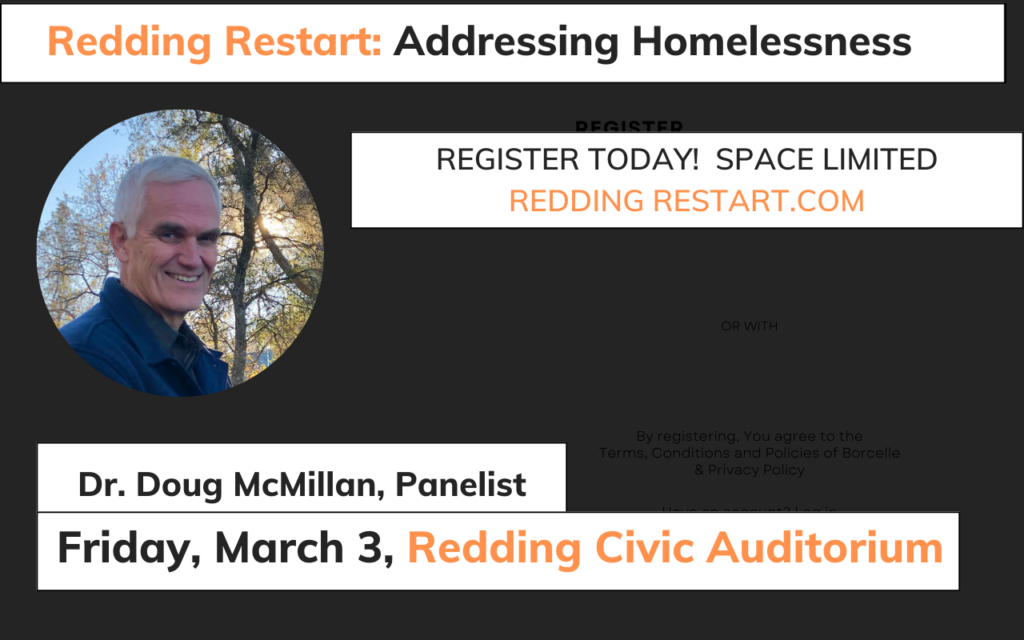“The Doctor is In”: McMullin’s Mission
“Should not I pity Nineveh, that great city, in which there are more than 120,000 persons who do not know their right hand from their left” (Jonah 4:11)?
Dr. Doug McMullin is a tall, self-effacing man with chiseled features, a ready smile and a Lincolnesque demeanor. He immediately inspires trust. And for the population he serves when not performing the duties of his GP practice in Redding, CA, trust is all-important. As is compassion.
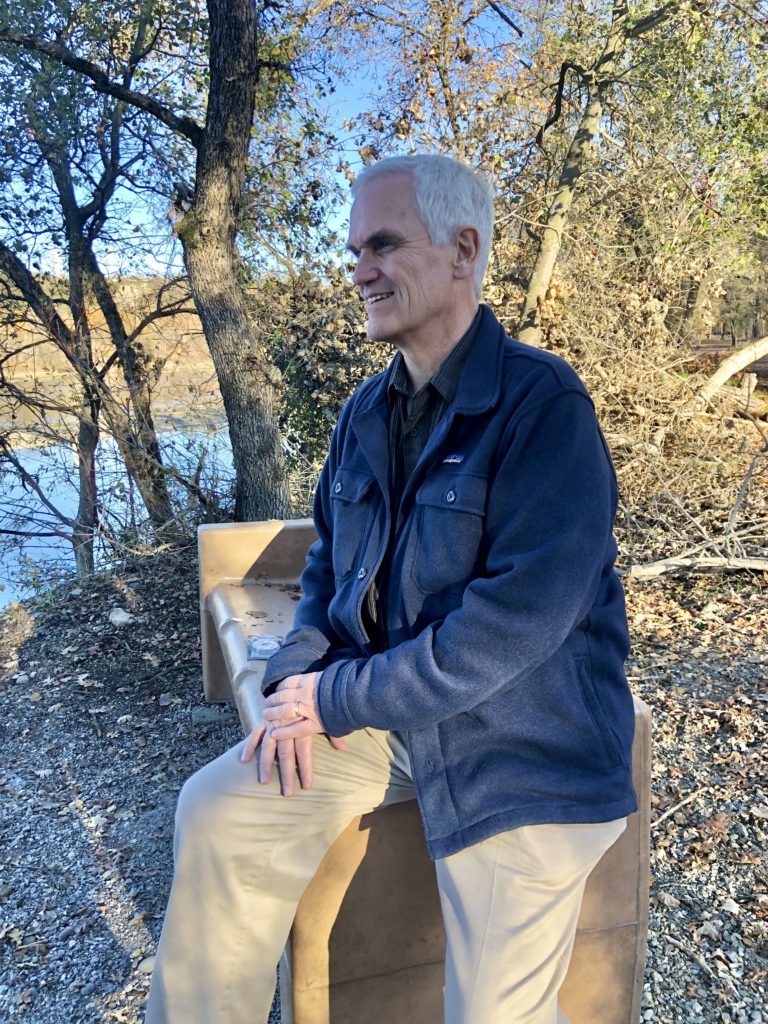
“People don’t care how much you know until they know how much you care.” McMullin would be quick to agree with that sentiment. With his “street patients,” just as he is with his medical office patients, “the doctor is in”—all in.”
But caring about the down and outers among us; specifically, Redding’s homeless population, did not always come easy for McMullin. It wasn’t that he was insensitive to their plight—it was more that he viewed them, as many people do, as a homeless monolith. They were a troublesome blight on the community that needed to be dealt with—and little more.
“I think that’s typical of a lot of people, says McMullin. You just don’t know. I mean, I lived here for 20 years in private practice and one day I started going out with the people who were doing outreach. And that changed everything for me. It’s only when I met people experiencing homelessness and heard their stories that I realized what they were going through. And you quickly realize that this could easily be you or someone in your family.”
The Doctor is In
McMullin’s new-found compassion for people stuck in the cycle of homelessness was not just a facile sentiment or lofty ideal. He worked it. He began partnering with the Shasta Community Health Center and going out in the Hope Van—a mobile medical unit that drives to the camps, under bridges, to parks…anywhere individuals experiencing homelessness might be camped out. McMullin also regularly visits the clinic at the Good News Rescue Mission—providing needed medical services for guests.
Knowing this about McMullin, that he works quietly in the trenches vs. being the sort of political activist who is often entrenched in duplicitous agendas, I had to ask him, “Do you feel the homeless situation is a political problem, a social problem, a spiritual problem, or all of the above?” His answer was revealing.
“I think it stems from all the above factors. Put simply, families aren’t as tight as they used to be,” says McMullin. “And so, we’re seeing people in their 50s and 60s who have led hard lives and who don’t have a safety net”.
To illustrate his point, McMullin shares a story about a 60-something homeless woman named Suzie. “It was my first time out visiting a homeless encampment,” says McMullin. “So, I pulled up a log and listened intently as she shared her story of how she ended up in such dire straits.”
“As I listened to her, I realized that it isn’t just bad decisions that cause people to end up on the street. I mean, it’s that, sometimes, yes, but for many people, it can also just be an unfortunate turn of events such as a sudden illness, a financial downturn, divorce, or even death. And without a safety net, that will wipe out a lot of people.”
No More Happy Little Home
Susie was one of those people: a bit of a mixture. She raised her family and then her husband unexpectedly died. Because they didn’t have their finances in order, she was left with nothing. She soon lost the house and was forced to live in her car. Then her car got impounded and she spent the next five years on the streets. She got beat up and taken advantage of in every imaginable way.
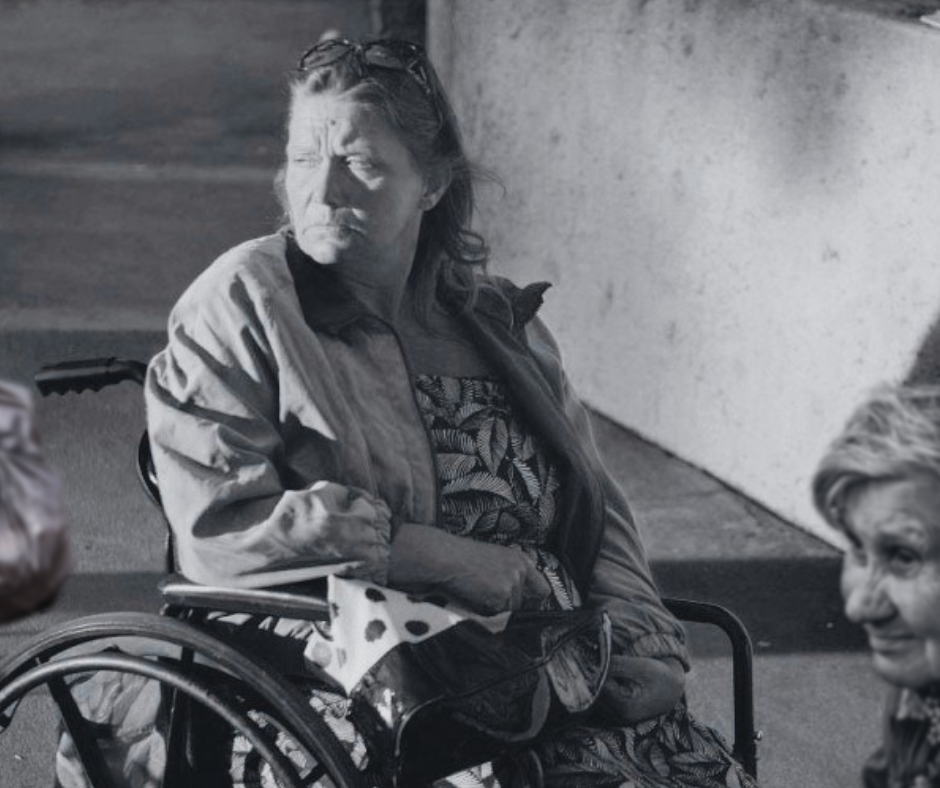
“I thought to myself, this is so sad because she and her husband lived in their little house and they were happy,” says McMullin. “And then he died, and she was homeless. To make matters worse, she became ill, and it was all just too much.”
“She still has a broken arm that’s been that way for ten years because it’s never been set. She had cancer, she had bleeding in her head from an injury and lots of other messed-up stuff. Now she’s in a wheelchair. But the bright spot in all that is that her church eventually helped her get into an apartment.”
Listening to him, I can see how he could easily call people like Susie “a friend.” In those moments, he’s not a medical doctor, or a benefactor, or any kind of “other.” He’s simply a fellow human being who has taken the time to listen to someone’s story of how they came to be where they are—which for too many, means they end up friendless and alone.
“All the Lonely People…Where Do They All Come From?”
That’s the funny thing about being “friendless and alone” –it can happen to anyone and, more often than not, it happens to those at the very top and those at the very bottom…for different reasons, but the result is the same. And so is the cure. Jonathan Anderson, the director of the Mission, believes part of the cure for both groups and really, everyone, is becoming vulnerable and reaching out.

“Super wealthy people can be lonely because everybody just wants something from them,” says Anderson. “And on the other end of the spectrum, there are the people living on the street who are just as lonely because nobody wants anything from them. They don’t exist except as a problem to be solved.”
“And I think these two groups can say to each other, ‘Hey, look, we can help fix this loneliness. Because it’s not about money. It’s not about material possessions… it’s about relationships. And it’s about building community—no matter how disparate these groups may seem to be. So, I think the underlying question we should always be asking is, what can we learn from each other?’”
You might not think you can learn anything from someone living on the street. After all, they can’t even seem to get a solid grasp on their own lives. What wisdom do they have to impart? But you’d be wrong. In that regard, Anderson says it’s often our pride and preconceptions that keeps us from learning from “the least of these”—the ones who surprisingly often have the most to teach us.
Doug in the Dugout: A Surprise Heavy-Hitter
“I knew this homeless guy named Doug. And I would just come and sit with him, and he’d say, ‘Jonathan, let me tell you how God showed up and met me today!’” shares Anderson. “And he would reference this scripture and then tell me about his experience of watching God work out those scriptures so tangibly in his life.”
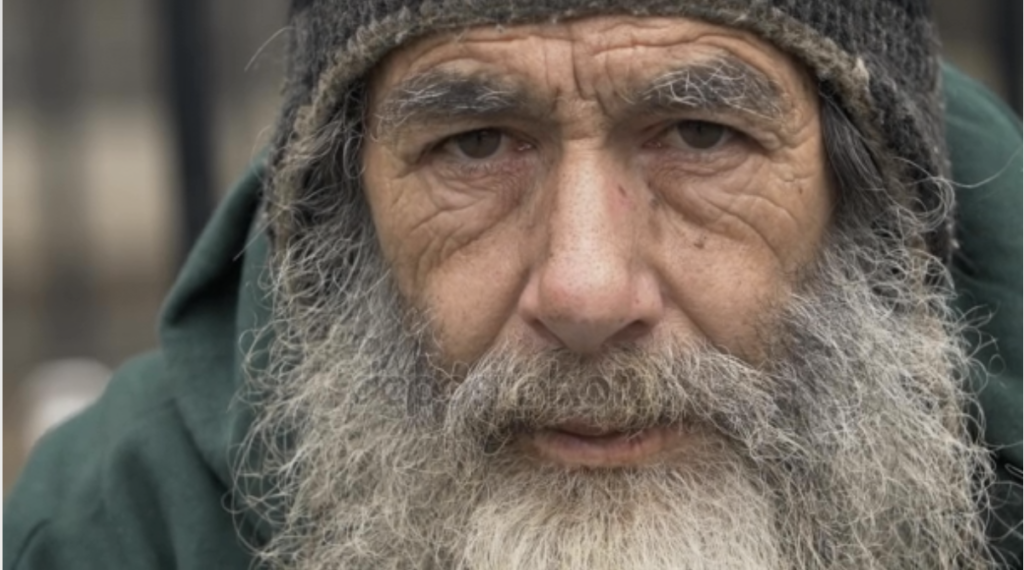
“And I’ll tell you what, I’ve have had an expensive Bible education, yet nothing in all my education compares to the lessons this homeless guy taught me. And yet this is a guy who slept on the streets, you know, for 14, 15 years and to this day I still consider him as both a spiritual mentor and a friend. And it’s mind-blowing.”
It’s an inspiring story. And yet “Doug” still sounds like a fictional character—a lead character in a feel-good Hollywood film. The reality is most people would never take the time to discover this unlikely street sage. To most, Doug would be considered as one of the “great unwashed”—the kind of person we cross the street to avoid. “I’m glad I’m not like one of those men,” we think to ourselves.
Talking to the Sky
Besides physical disabilities and addiction problems, there is the other factor contributing to homelessness: mental health issues. “We don’t have mental health resources like we used to—because they’re expensive,” says McMullin. “They were cut from the state years ago, and so there’s a lot of people with mental health issues who prior to the 70s and 80s had support places to stay and be treated. But now they’re out on the street talking to the sky.”“That all that sounds rather disheartening,” I tell him. “I mean you’re out there and you’re maybe reaching a dozen people any given day, if that. So, do you ever feel as though your efforts are just a drop in the bucket and that comparatively, you and all the others trying to help are not making much progress? That the effort-to-success rate is just too low?”
“It depends how you grade success,” responds McMullin. “The other day, a fellow came up to me and gave me a big hug in the lobby of our clinic. I recognized him from years ago when he was high on drugs and living under a bridge. And now I find out he’s doing great; in fact, he just got a job at UPS.”
“But you know, he started and stopped the drug treatment program probably four or five times. Finally, with time and God’s grace, he made it through. He’s back with his family. He’s off drugs, he’s doing great. And so, when you see any success at all, that’s very heartening…and it’s really the goal. Because it’s a realistic one.”
It’s also Kingdom reality—where even one soul is compared to “a pearl of great price.” As Jesus tells his disciples, “I tell you, there is great rejoicing in the presence of the angels of God over one [emphases mine] sinner who repents.”(Luke 15:10).
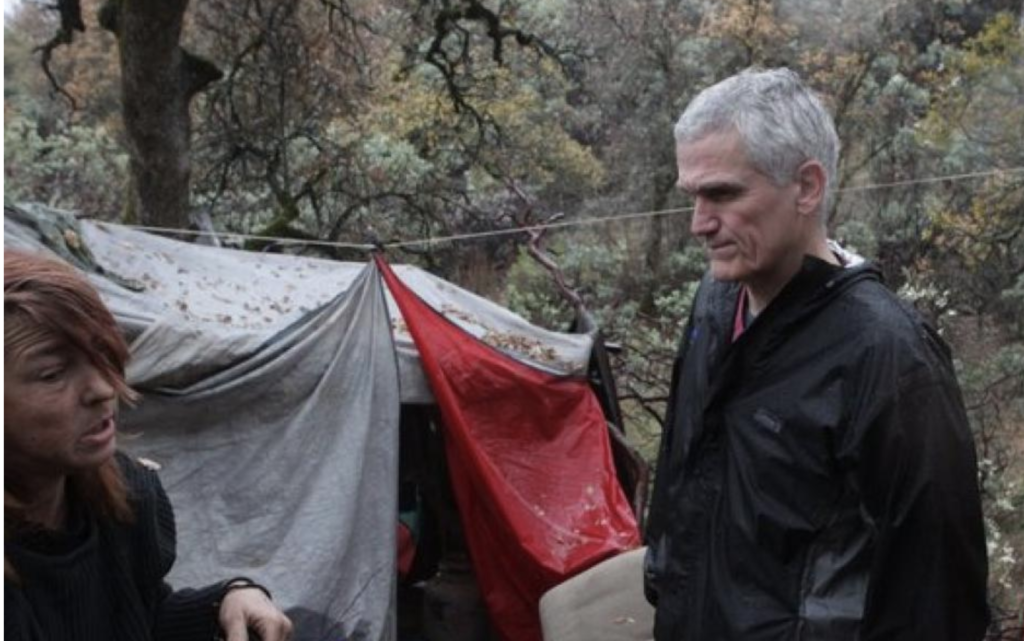
Polishing the Pearls
It’s the mindset of the Mission as well. They regard everyone who sets foot on the campus as rough pearls needing to be gently pried from their shells, and then polished by God’s love. “They are people who are in different stages of their journey, different stages of readiness to receive help. “But we need to be there when they are ready,” says Anderson. “That’s what we’re here for and it’s the greatest gift we can give.”
McMullin concurs. He recalls another older woman, a woman named Barbara, who had been living under a bridge in Redding for 20 years. One of nine children, she was raised by her father in Arkansas after her mother had abandoned the family. “I don’t know how true it is, but she told me they survived on roadkill and wild green,” says McMullin.
McMullin goes on to explain how they worked with an agency to get the obviously physically ill woman off the street. Eventually, they got her an apartment. He considers Barbara a success story but at the same time, he was shocked how she responded to a simple question about her health:
“One day she was complaining about this pain and when I asked her about it, she said, ‘Oh my hip is hurting.’ So, I pressed further, asking her, ‘Well, is it your right or your left hip?’ And she smiled at me and said, ‘Oh sweetie, I don’t know what that means…I don’t even know my right from my left.’ And wow, that just drove it home for me. It’s hard to imagine anyone going through life and not knowing that!”

120,000 Very Confused People
After hearing this story, I couldn’t help but compare Barbara’s response to how God couched the plight of the 120,000 people who lived in Nineveh to Jonah, the world’s most reluctant evangelist. “Should not I pity Nineveh, that great city, in which there are more than 120,000 persons who do not know their right hand from their left” (Jonah 4:11)? We all know how Jonah responded to that question: he hightailed it out of Dodge by taking the next ship out to Tarsus.
Not dissimilar to Jonah’s reluctance to preach the “Good News” to those desperately in need of hearing it, is our own reluctance to help those who are in dire need—be it materially, spiritually, or both. In that regard, McMullin says, we are all products of our Western culture.
“We have decided in our minds as a society that everybody’s on their own and therefore they should take care of themselves,” says McMullin. “And if they don’t manage to do that, well, that’s their problem. And unfortunately, there’s people like Carol who don’t even have the most basic of skill sets.”
“And what I’ve observed is that 70% of the homeless are disabled in some form or fashion. People like Susie and Carol. And because of that, they will not be able to navigate resources: The DMV, the social security, getting a job, they just won’t be able to do it. And then you throw everything else in there, like drugs, mental illness and harsh economic realities for some people, and it makes the barriers a little higher.”
The takeaway lesson from McMullin’s and Anderson’s “tales from the trenches” are, or should be, obvious: The way to look at every person is through God’s lens. Without Christ, all people—rich or poor, sheltered or unsheltered, old or young, educated or non, are “strangers in a strange land”—alienated from their Creator. They’re unable to cross the Great Divide because they are spiritually blind…not even knowing “their right hand from their left” as God refers to the Ninevites when chastising Jonah over his reluctance to offer them a way over that Divide and back to Him.
If we’re honest, to a greater or lesser degree, we are all reluctant prophets and evangelists. But men like Dr. Dough McMullin and Jonathan Anderson issue the clarion call for us do better…for our community’s sake, for the men and women who have lost their way, and for the benefit of our own souls. When we help the poor—in every sense of the word that God intended it—we are only the richer for it.
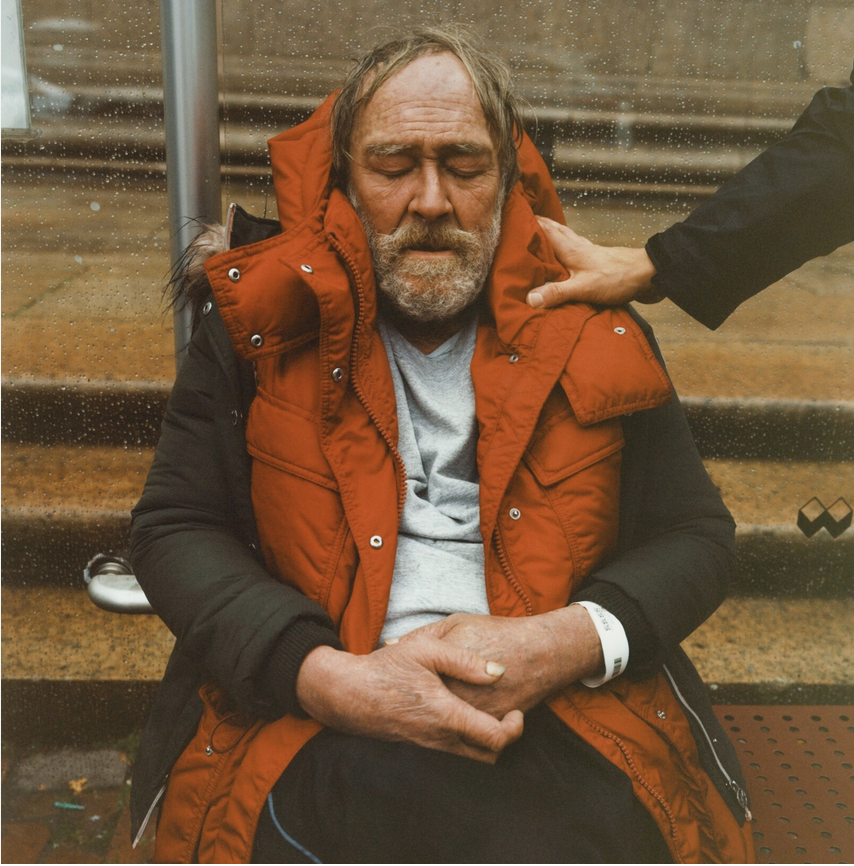
###

